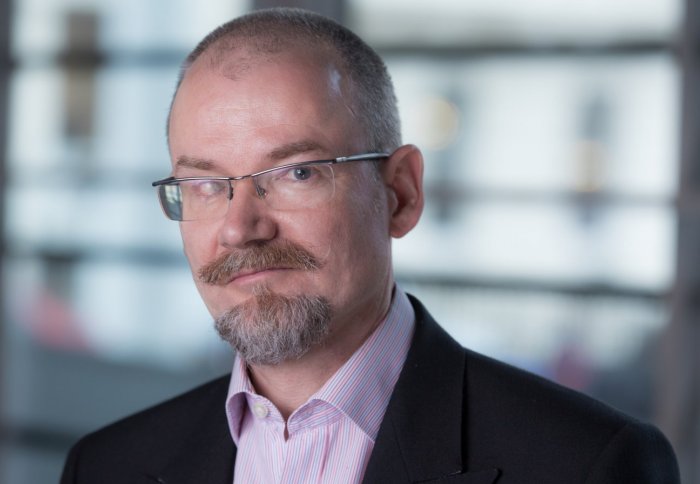

James Barlow, Professor of Technology and Innovation Management, has been appointed President of the International Academy for Design and Health.
The Academy is a global non-profit organisation dedicated to the stimulation and application of research concerning the interaction between design, health, science, culture and economics.
Professor Barlow, from the Healthcare Management Group at Imperial College Business School, took up his new role in August.
Maxine Myers caught up with him to talk about what the Presidency entails and the challenges of developing better healthcare facilities.
Can you tell me about your new role as President of the Academy?
The Academy has grown to become the leading global body representing all those involved in the development of healthcare facilities – the design and construction industries, hospitals and other healthcare providers, government ministries and academics. It organises three major world events every year, attracting more than 1,000 thought leaders and policy makers, and its journal, World Health Design, is read annually by more than 35,000 people.
My role is to help the Academy respond to the big trends that are influencing how healthcare is provided. For example, as healthcare evolves our definitions of healthcare ‘infrastructure’ also need to change – it’s not just about building large and expensive new hospitals but thinking about how healthcare will be increasingly distributed across the whole community, including our homes. And there is growing interest in the way good design in the built environment can help promote better public health. I’ll be helping to steer the academy in these new directions, building new relationships with universities – including Imperial – and others involved in rethinking how and where we provide healthcare.
What are your initial plans as President?
My immediate task is to help finalise the Academy’s next symposium, in Beijing in October. The event will explore how the quality of the built environment affects our health, wellbeing and quality of life. There are also plans for an Academy-supported book on ‘salutogenic’ design. This is the notion that design factors can play a significant role in stimulating healthy behaviour and promoting health and wellbeing. In the longer term I will be helping the Academy explore new educational activities with universities, such as MSc modules or courses on innovation in healthcare design and infrastructure, executive education and leadership courses.
What do you think are some of the challenges the Academy faces?
The big challenge – and this is one I faced as Principal Investigator of the Health and Care Infrastructure Research and Innovation Centre at the Business School- is a danger of ‘falling between the cracks’. There are research and practice communities focusing on healthcare technology, on the built infrastructure and on organisational issues, but much of the Academy’s work needs to sit between all three. We have to find ways of bringing together these different groups, with their own ways of seeing the world and different disciplinary backgrounds, into one conversation.
Many countries including the UK are currently facing the challenges of chronic disease, ageing populations and rising healthcare costs. What do you think governments around the world need to be doing to address these growing challenges?
The lessons from years of research and practice are pretty clear – focus more on prevention, use technology wisely, be creative about the models we use to deliver healthcare, and be aware of local context. Putting these lessons into practice is another matter, though. This requires us to address the legacy of institutions and infrastructure that are embedded in many countries’ health systems, and that can be incredibly hard to do.
Article text (excluding photos or graphics) available under an Attribution-NonCommercial-ShareAlike Creative Commons license.
Photos and graphics subject to third party copyright used with permission or © Imperial College London.
Reporter
Maxine Myers
Communications Division

Contact details
Tel: +44 (0)7561 451 724
Email: maxine.myers@imperial.ac.uk
Show all stories by this author




Leave a comment
Your comment may be published, displaying your name as you provide it, unless you request otherwise. Your contact details will never be published.